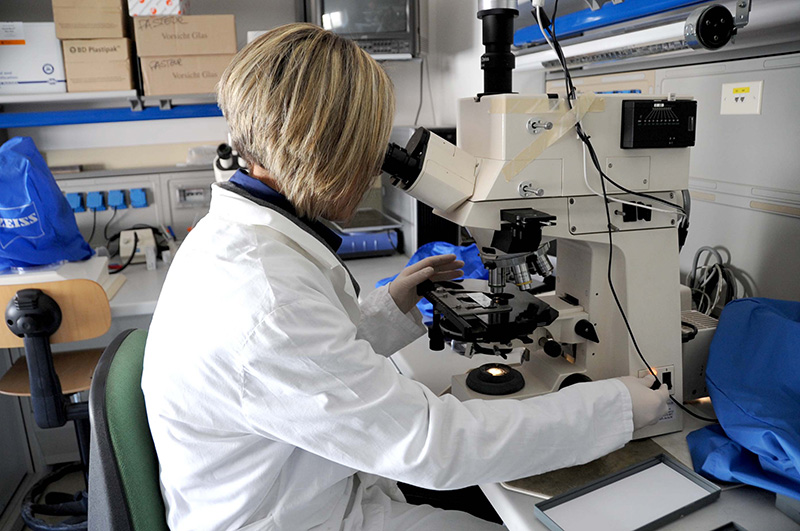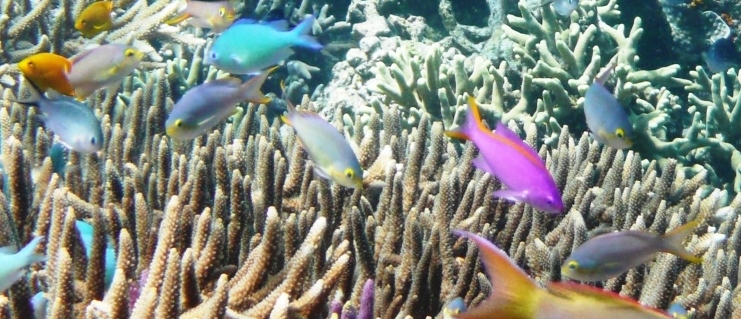Mission
La missione della Stazione Zoologica è la ricerca sui processi fondamentali della biologia, con specifico riferimento agli organismi marini e alla loro biodiversità, in stretto legame con lo studio della loro evoluzione e della dinamica degli ecosistemi marini, attraverso un approccio integrato e interdisciplinare. Lo studio delle applicazioni biotecnologiche conseguenti è parte della missione dell’Ente.

Le ricerche nel campo della biologia marina, oltre a consentire avanzamenti delle conoscenze di base, hanno spesso una valenza biomedica. Ne costituiscono esempi illuminanti i premi Nobel per la Fisiologia e Medicina ottenuti da eminenti studiosi per studi condotti su organismi marini. La recente acquisizione di genomi di numerosi organismi marini e la crescente facilità di ottenerne di nuovi, la possibilità di utilizzare nuove metodologie della cosiddetta genetica inversa e della microscopia avanzata, aprono nuovi fronti di investigazione nel settore della Biologia. Inoltre, l’esplorazione della biodiversità presente nei mari viene sempre più ritenuta un settore da cui deriveranno avanzamenti fondamentali relativi alla conoscenza di meccanismi biologici di base, di nuove sostanze bioattive e dei meccanismi che intervengono negli equilibri climatici globali.
Nel panorama degli Enti di ricerca nazionali e internazionali l’originalità dell’Ente deriva da alcune caratteristiche chiave:
- La co-esistenza di ricerca biologica ed ecologica, elementi essenziali per una comprensione degli equilibri complessivi dell’ambiente marino e dei meccanismi di base che lo governano.
- La capacità di avvalersi di un approccio multidisciplinare che include la genetica, la biologia cellulare e dello sviluppo, la fisiologia, l’ecologia e l’oceanografia.
- La capacità di esplorare e sviluppare metodologie e protocolli sperimentali che rappresentano riferimento per importanti ricerche trasferite in altri sistemi e/o organismi.
- Le competenze su un ampio spettro di organismi, che permettono ai ricercatori dell’Ente di affrontare problemi ecologici valutando l’apporto della componente biologica nella sua complessità.
Oltre alle specifiche attività di ricerca, la missione della Stazione Zoologica - coerentemente con la sua tradizione - è tutt’oggi quella di:
- offrire accesso all’utilizzo di organismi marini per la comunità scientifica internazionale;
- fornire consulenza qualificata ad enti pubblici;
- offrire formazione ad alto livello.
In particolare, la capacità di sviluppare attività di ricerca e contemporaneamente di fornire servizi scientifici specializzati ad alto impatto tecnologico e con approccio multidisciplinare rappresenta il principale punto di forza della Stazione Zoologica Anton Dohrn; caratteristica che la rende unica rispetto alle strutture di ricerca nazionali.
Vision
Following the current prescriptions given by the EU Mission Board on Healthy Oceans, Seas, Coastal and Inland Waters, the Mission Starfish 2030 (Restore our Ocean and Waters by 2030) has been proposed. This aims to know, restore and protect our ocean and waters by 2030, by reducing human pressures on marine and freshwater environments, restoring degraded ecosystems and sustainably harnessing the essential goods and services they provide (https://ec.europa.eu/info/publications/mission-starfish-2030-restore-our-ocean-and-waters_en). Inspired by the shape of the starfish, five overarching objectives for 2030 have been identified:
a. Filling the knowledge and emotional gap,
b. Regenerating marine and freshwater ecosystems,
c. Zero pollution,
d. Decarbonizing our ocean, and waters
e. Revamping governance.
These five objectives are mutually supportive and taken together, Mission Starfish 2030 will aim to enable the restoration of the water cycle as a whole. For each of the five objectives, a set of ambitious, realistic and measurable targets have been defined. They specifically address the actors, activities, tools and systems that need to be called upon to reach each objective. These are considered the indispensable components of a holistic approach to systemic change. Conservation efforts should be incorporated within an Ecosystem Based Management framework and should address the entire ocean and water system with a holistic approach, if they are to succeed. The future we must collectively create will be defined by how we perceive ourselves to be in relation to the natural capital of our oceans and waters, guiding the choices we now make.
The 2030 Agenda for Sustainable Development, adopted by the United Nations in 2015, identified 17 Sustainable Development Goals and 169 targets. Goal #14 “Life below water” aims to “Conserve and sustainably use the oceans, seas and marine resources for sustainable development”. The SZN research priorities strongly align to this goal, including other Goals, such as #13 (Climate Action - “Take urgent action to combat climate change and its impacts”).
The Stazione Zoologica achieved rapid growth in terms of personnel over the last 5 years. This trend should continue to be consolidated for the next decade, thus increasing the leading role at national and international level as reference for its expertise in the field of marine science and particularly of marine biology and ecology.
We believe that marine biodiversity is the greatest source of knowledge yet unexplored of the Planet and that further study is required to provide a major contribution to the advancement of human knowledge and acquiring new tools for sustainability.
The development of new technologies and expansion of current approaches allow us to study biodiversity at all levels of organization. The scientific outcomes and continue increase in SZN research capacity will allow to stimulate the growing capacity of turning research into data, and data into knowledge.
The SZN wants to seize this opportunity, challenging the inter-disciplinarity ‘priority’ by enhancing its expertise and further expanding the leading role in a global collaborative network. For the next decade we identify the following Research strategic areas.
SZN Vision for the years 2021-2030
SZN Research Strategic areas for the 2021-2030 decade:
a) Characterization of molecules, structures, physiology, adaptation, threats, resilience of marine organisms and assemblages to explore their capacity to adapt to extreme environments and conditions.
b) Genomics of marine organisms applying an eco-evo-devo integrated approach.
c) Exploration of the mechanisms of macro and micro-evolution from genomes to epigenetics epigenomes, from species to communities integrating different approaches.
d) Exploring and analysis of patterns and processes of marine biodiversity, adopting novel integrated, and holistic approaches.
e) Understanding impact of Global Change through marine observatories for answering to strategic needs.
f) Improve the conservation of marine biodiversity through an ecosystem-based management approach.
g) Exploiting marine organisms’ potential for industry, food and medicine for developing eco-sustainable marine biotechnologies.
h) Supporting the eco-sustainable development of renewable energy resources from the sea.











